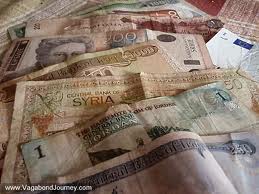Bengaluru, Apr 7: The Karnataka Government indicated today that it is too early to take a call now on lifting the nation-wide lockdown but said it’s in favour of its extension in COVID-19 hotspots in the country by at least an additional two weeks.
“We need to see for another few days before taking final call,” Medical Education Minister Sudhakar K, who is in-charge of all matters related to COVID-19, told news agency Press Trust of India when asked if the State is in favour of the rollback after the 21-day period ends on April 14.
The minister opined that the decision on its withdrawal should be based on the COVID-19 pandemic situation at the time in terms of number of cases and response to the outbreak.
When the lockdown is lifted, it has to be in a staggered and phased manner, and not at one go, Mr Sudhakar stressed.
“Where there are red alerts and zones, those zones, in my opinion, should continue to be in a lockdown situation at least for two weeks…till this month-end, I will request them (the Centre) to do this,” he said.
The Telananga Chief Minister K Chandrasekhar Rao on Monday appealed to the Prime Minister Narendra Modi to extend the 21-day national lockdown imposed to contain COVID-19 outbreak beyond April 14, saying it was essential to save lives.
Mr Sudhakar said the Karnataka government is facing financial challenges because of drastic fall in revenues due to the lockdown, adding, it would take “tough decisions” to cut expenditure.
The Finance Department is in the process of evaluating the state’s fiscal position.
“Finance department is gathering information…what is the need now, what should be the overall expenditure, how much we can save; financial support for unorganised and organised sector, along with stimulus to other sectors, we have to see where we stand financially,” the minister said.
“Based on that, we have to take certain steps for sure because after all the government runs on the exchequer money. Once the exchequer is stopped because of lockdown, we are not getting GST, no motor vehicle tax. No tax money is coming.”
Government also has to run right? he said.
He said commitment and obligations with regard to paying interest on loans taken at the national and international level would have to be met.
“So, there are some financial constraints, and financial challenges before the government. The Government will take tough decisions only after studying the entire finance (position of the State).”
The Telangana government last week announced pay cut for government employees.
The Union Cabinet on Monday approved a 30 per cent cut in salaries of all Members of Parliament and a two-year suspension of the MP Local Area Development (MPLAD) scheme.
 "About 20 Arab nations in West Asia and Africa have committed to grant Rs.8 million this year to fund minority entrepreneurs, help young women become self-reliant and educate the youth," Indo-Arab Chamber of Commerce executive director Asif Iqbal said.
"About 20 Arab nations in West Asia and Africa have committed to grant Rs.8 million this year to fund minority entrepreneurs, help young women become self-reliant and educate the youth," Indo-Arab Chamber of Commerce executive director Asif Iqbal said.




Comments
Sir, i am saying genuine matter to inform u that could you help me for hospital expenses. I have done ajiogram surgery in the year 2013 in mmm hospital in mugapair at chennai. I have spent two lakh rs. I will send a medical papers for ur reference. I have borrowed these money from relatives and friends and promised me to reback these money but not yet fulfill. Three years past not to repay . Pl. Ask nri muslim to help in this. I will send full details in ur email [email protected] and medical papers thru ur postal address. Pl.kind enough to help me in this regard. I am the senior citizen i can't heavy work a present i am doing pan card copy writer get small amound not able to repay the said amount and just pulling days of this small in come.
Pl reply in my email
S.shahnawaz
Thanking you
Add new comment